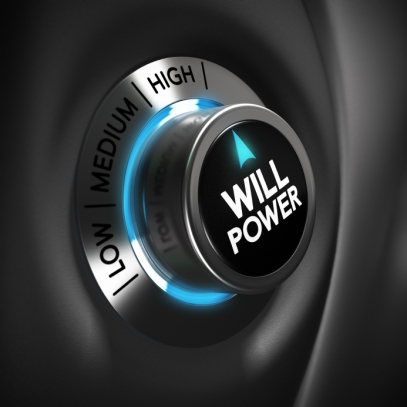All of life’s greatest battles take place in the mind. It’s very important we win every single one of them since our actions are by-products of whatever happens at the thought level. As humans, various thoughts will come to us unbidden and unwanted. We can never escape that truth. We’re not entirely in control of ourselves all the time. That’s why each one of us needs to put in place some sort of control mechanism—willpower—to guide how we think.
In philosophy, we learn that a person’s will is one of the most distinct parts of their mind, along with reason and understanding. If that’s the case, then it makes a lot of sense to easily give in to short-term pleasures, discouragement, doubt or fear when we set poorly defined goals. Eat healthily; Exercise regularly; Sleep and wake-up on time; Avoid impulse buying; Read avidly; It’s our desire to do so many things to improve ourselves but truth is if they aren’t assigned to proper reasons, our willpower wouldn’t be enough to make them happen.
Most of the successful men and women we know are just ordinary people who overcame huge obstacles by winning their mental battles. Bill Gates for example didn’t become the world’s richest person by default. For your information, Bill Gates’ first business (Traf-O-data) failed miserably. Traf-O-Data was a partnership between Bill Gates, Paul Allen, and Paul Gilbert. Their main objective was to make devices that would read traffic tapes and eliminate any tedious manual work associated with it. I know this may sound rather funny but I was actually excited to know that the world’s richest guy once made a big fool out of himself when his first demo failed (things like this motivate me roff!). But this never made him succumb to the pressures of failure. Today, Bill Gates owns the world’s largest PC software company—Microsoft—and is making it in life big time!
Nelson Mandela grew up in a family where no one had attended school before. He became a cattle-boy at a very young age. His parents were illiterates and at the age of nine, Mandela’s father died of what was suspected to be a lung disease. Massa, nothing about him looked or even smelled like ‘success’ oo. Yet you and I celebrate Nelson Mandela International Day today in honor of his works to promote peace and freedom.
I can go on and on with the list of successful people just to drive my point home:
Oprah Winfrey gave birth at the age of 14 and lost her child two weeks later.
Jim Carey had to live in a van because he was homeless.
Albert Einstein never spoke for the first 3years of his life.
Thomas Edison failed about 1,000 times trying to invent the light bulb.
These are stories that will inspire me anytime any day. All of these people started out just like most of us; a total failure at many attempts. It’s amazing how these people got back up whenever life’s circumstances tried to pin them down permanently. This is why I find it rather interesting that it’s mostly the underprivileged people who live lives that can spur many of us on to greatness. I remember telling my mum that I wish I were underprivileged like them too. Maybe I would have given myself a much better reason to eat healthily, exercise regularly, sleep and wake-up on time, avoid impulse buying or achieve some noble cause. Sometimes I ask myself: while great men developed their willpower by tying their ambitions to clear, relevant goals, what have we tied ours to? #ThinkingDeeply
The capacity to say Yes or No to life’s challenges is a mental battle we will fight everyday. If we can win the mind’s struggles, we can definitely win life’s battles. It is true that we’re not naturally born with a strong willpower. But one’s willpower is like a muscle. The more you work it out, the stronger it becomes. And the stronger it becomes, the better your chances of repressing negative influences to accomplish long-term goals. If you want proof, the evidence is spread across the pages of history books.
